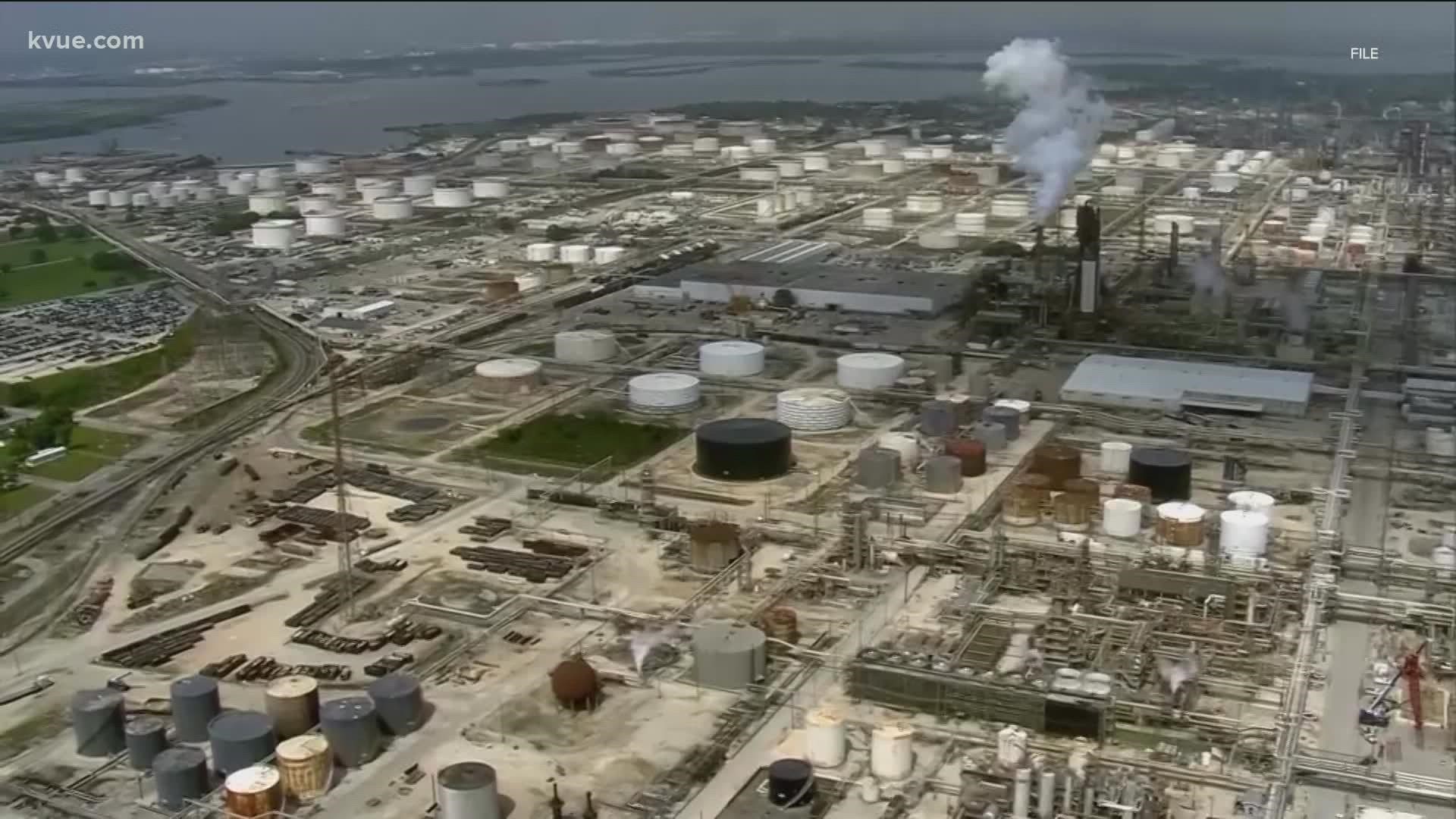AUSTIN, Texas — In a report on energy enforcement, auditors with the Federal Energy Regulatory Commission (FERC) flagged two natural gas companies.
The auditors told the commissioners about suspected market manipulation during the February winter event, known as Winter Storm Uri.
Manipulation impacts supply, damages electric grid reliability and increases costs.
“We examined market participants' associated price run-ups or collapses, along with their gross revenues and expenditures in the gas markets,” said Kevin Dinan, attorney-adviser for the Office of Enforcement at FERC.
Auditors turned the cases over to the department’s investigations unit. Names of the companies are not released.
“This examination remains ongoing as new information comes to light,” Dinan said.
This comes two days after FERC, North American Electric Reliability Corporation (NERC), Midwest Reliability Organization, Northeast Power Coordinating Council, ReliabilityFirst Corporation, SERC Corporation, Texas Reliability Entity and Western Electricity Coordinating Council issued their February 2021 storm report.
The agencies made 28 recommendations to Texas, including recommendations for weatherization, how to better predict electric demand, and increase the ability to rotate rolling blackouts.
“We know what happened in 2011, the last time recommendations were made to require generators to winterize in Texas. They were watered down to voluntary guidance,” FERC Chairman Richard Glick said in the committee hearing Thursday.
This year, Texas lawmakers passed legislation requiring power companies to winterize based on guidance from a decade ago. The Public Utility Commission issued its rules for weatherization based on the new law. Meanwhile, the PUC regulates the state’s electric utilities.
“You had the winterization issue of the generating units. And then you had a second major reason, which was the failure in many cases of gas supply to those units,” FERC Commissioner Mark C. Christie said.
This federal report shows February’s energy failures primarily resulted from both freezing temperatures and the supply of natural gas. During the February storm, the low natural gas suppliers caused more than a quarter of all power outages, the report shows.
The gas supply runs on expectations for a typical year. The report shows natural gas suppliers did not store enough in reserves to meet the demand of the storm, which led to problems, like low pipeline pressure getting to electricity generators. Low pressure reduces the ability to generate electricity.
The Railroad Commission of Texas (RRC) proposed new rules around when the flow of natural gas can be limited to certain customers so the resource can reach others.
Under the proposal, gas utilities will follow a priority list during any curtailment event. The proposal shows top priority would go to, “firm deliveries of natural gas to human needs customers and firm deliveries of natural gas to local distribution systems which serve human needs customers.” The second priority would be “firm deliveries of natural gas to electric generation facilities.”
Nothing will change for this winter season.
"We have two very distinct problems to solve: extreme weather events and blue-sky problems — when we don't have adequate resources on an otherwise perfectly normal day due to intermittency," PUC Chairman Peter Lake said in a work session Friday.
The 2021–22 Winter Reliability Assessment released Thursday predicts Texas has a .05% chance of a winter event like last February. The resource data shows ERCOT projects to have reserve margins higher than last winter season.
“With an Anticipated Reserve Margin of 42%, capacity reserves for the Texas RE-ERCOT area are sufficient to meet forecasted peak demand and to cover the types of severe weather events regularly experienced in the area,” the assessment shows.
That capacity reserves drop to 26.8% if the state experiences a “typical outage.” The assessment shows anticipated reserve margin for extreme conditions at -37.1%.
“We know that we don't have enough dispatchable energy, dispatchable resources in ERCOT. We know that we are going to have to get new money on the table from somewhere to pay for those resources,” Lake said.
Public comment for the RRC-proposed rule change will end Friday, Jan. 7. The proposed effective date is Apr. 1.
PEOPLE ARE ALSO READING:

